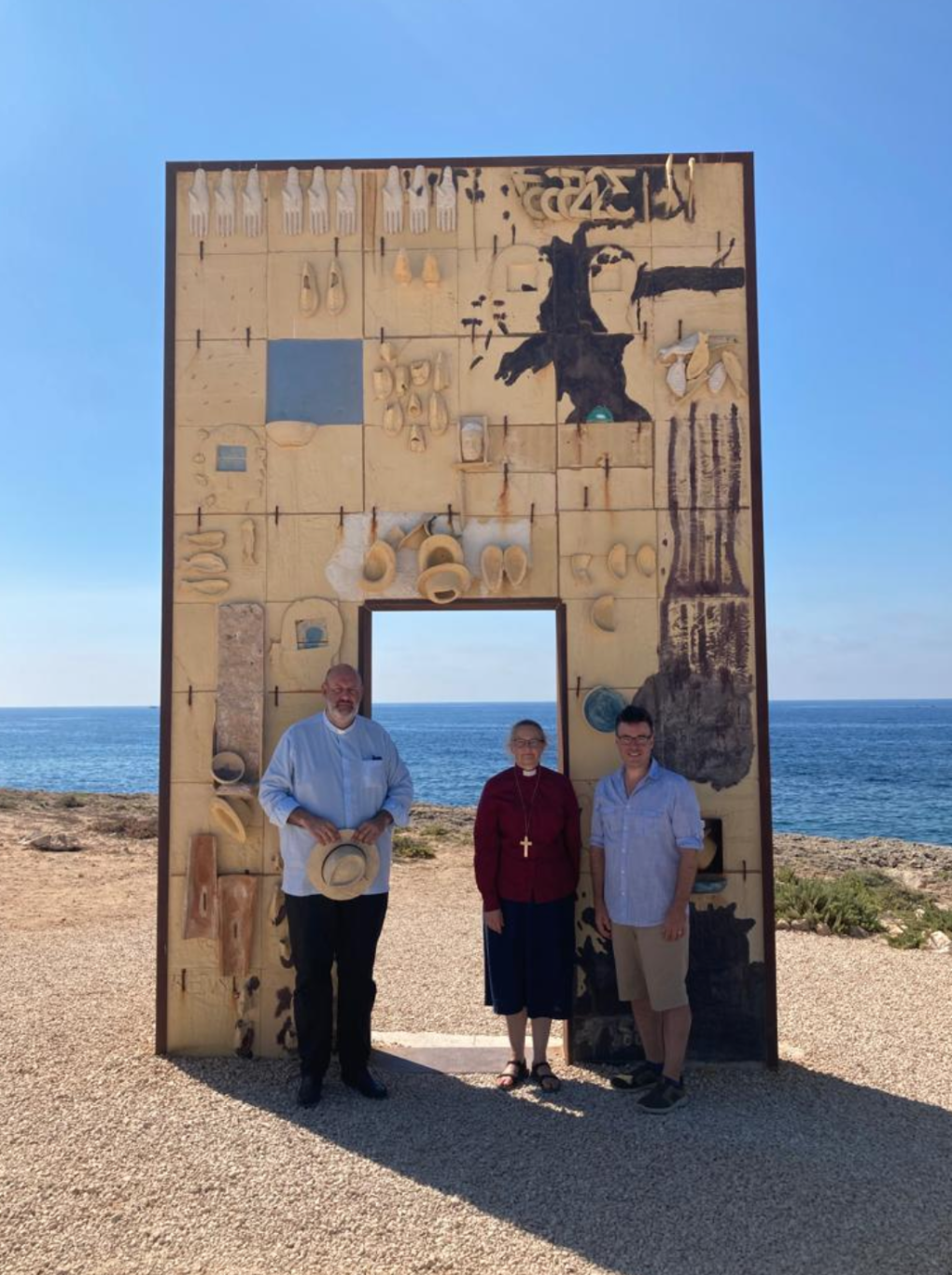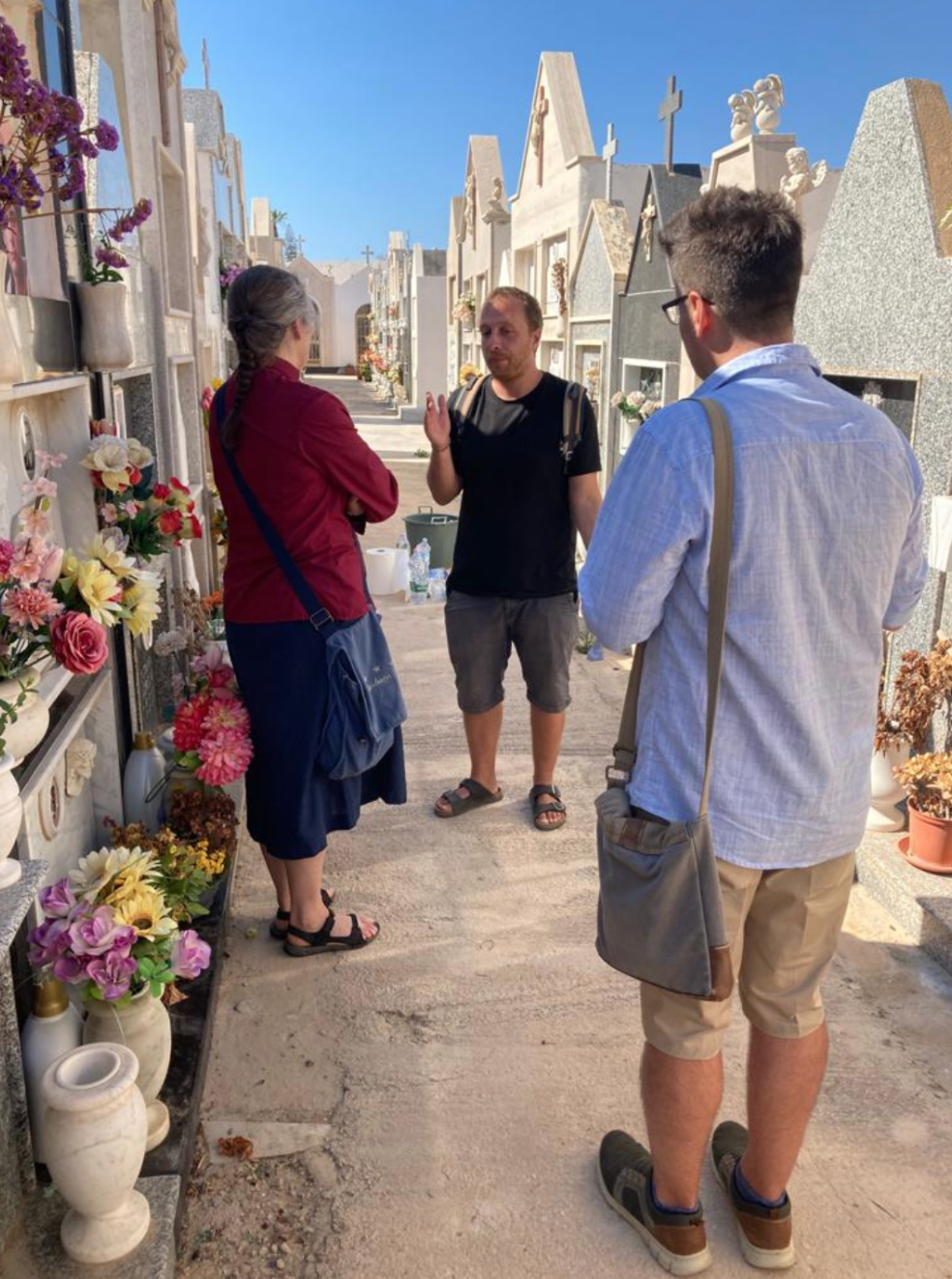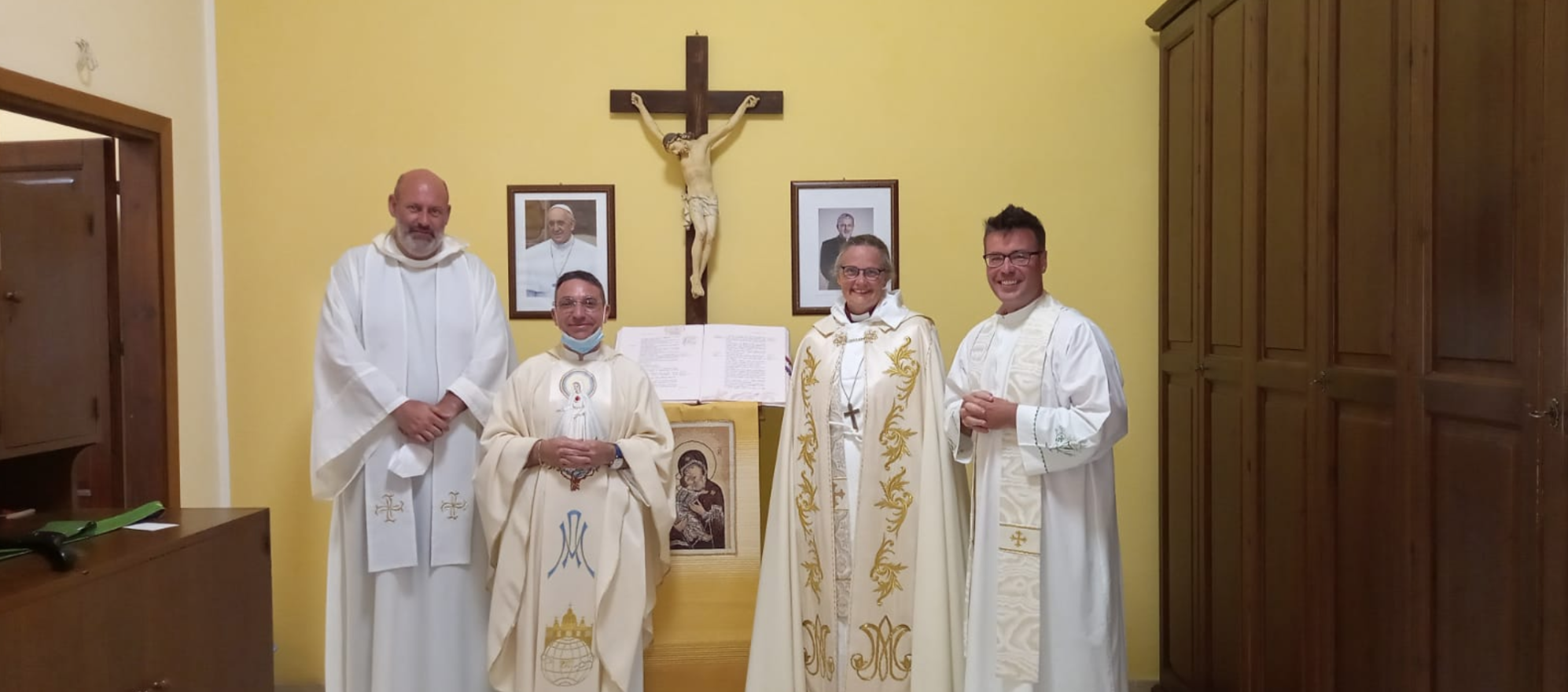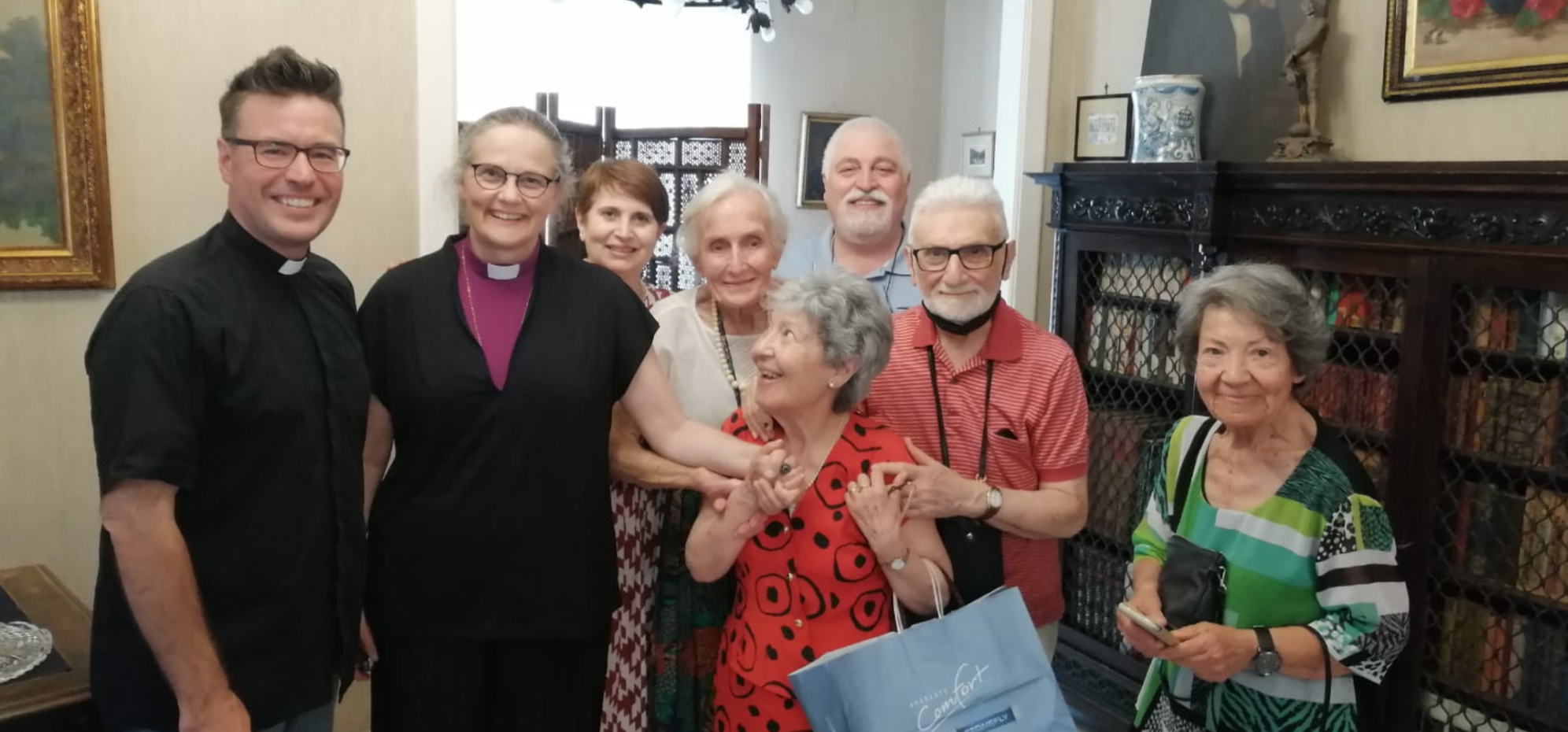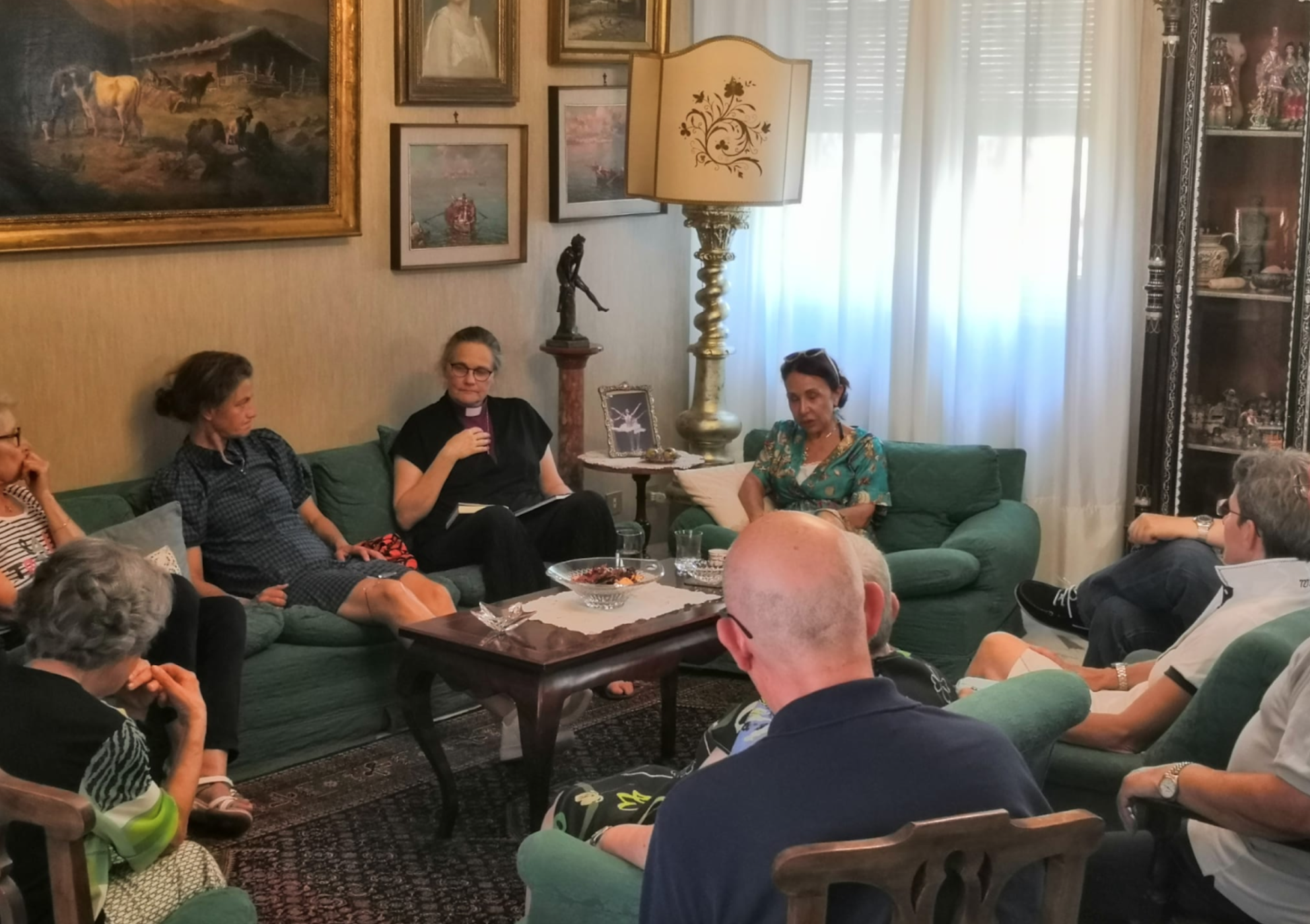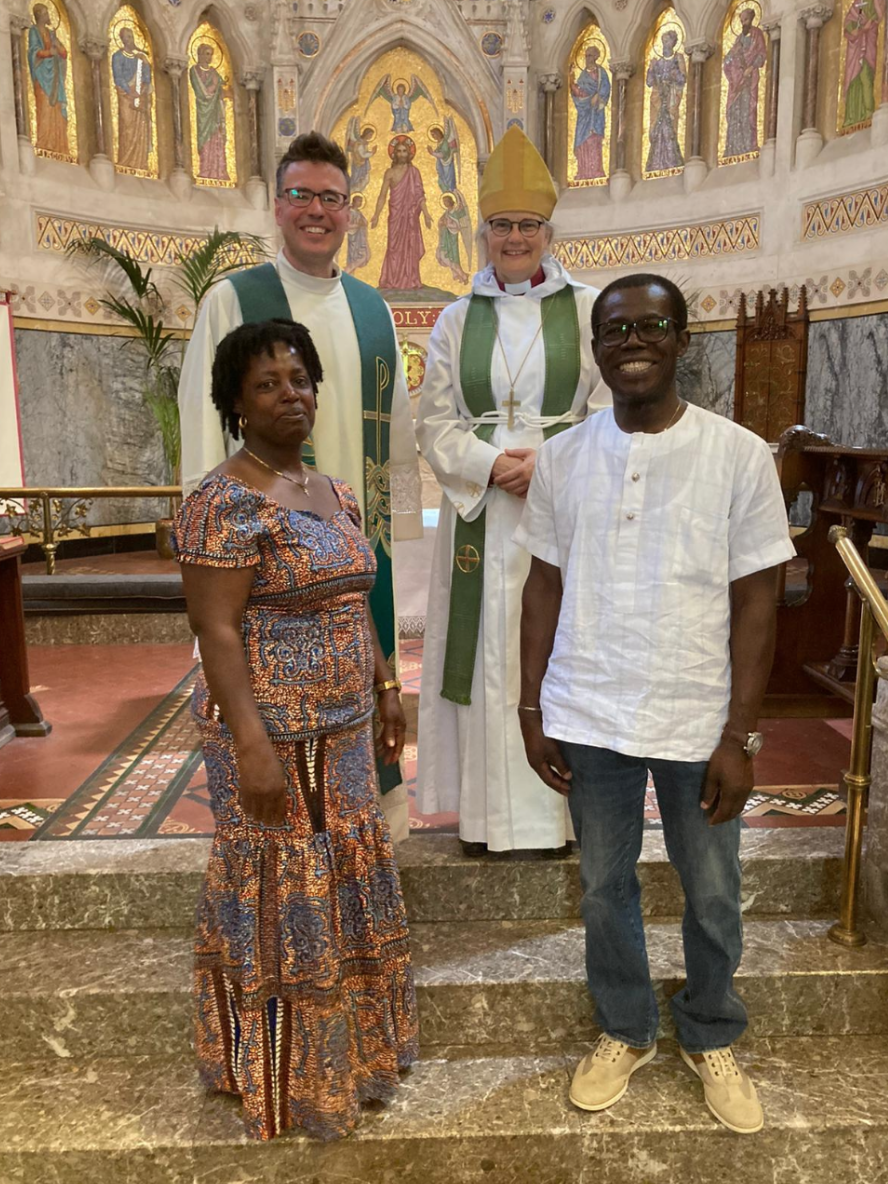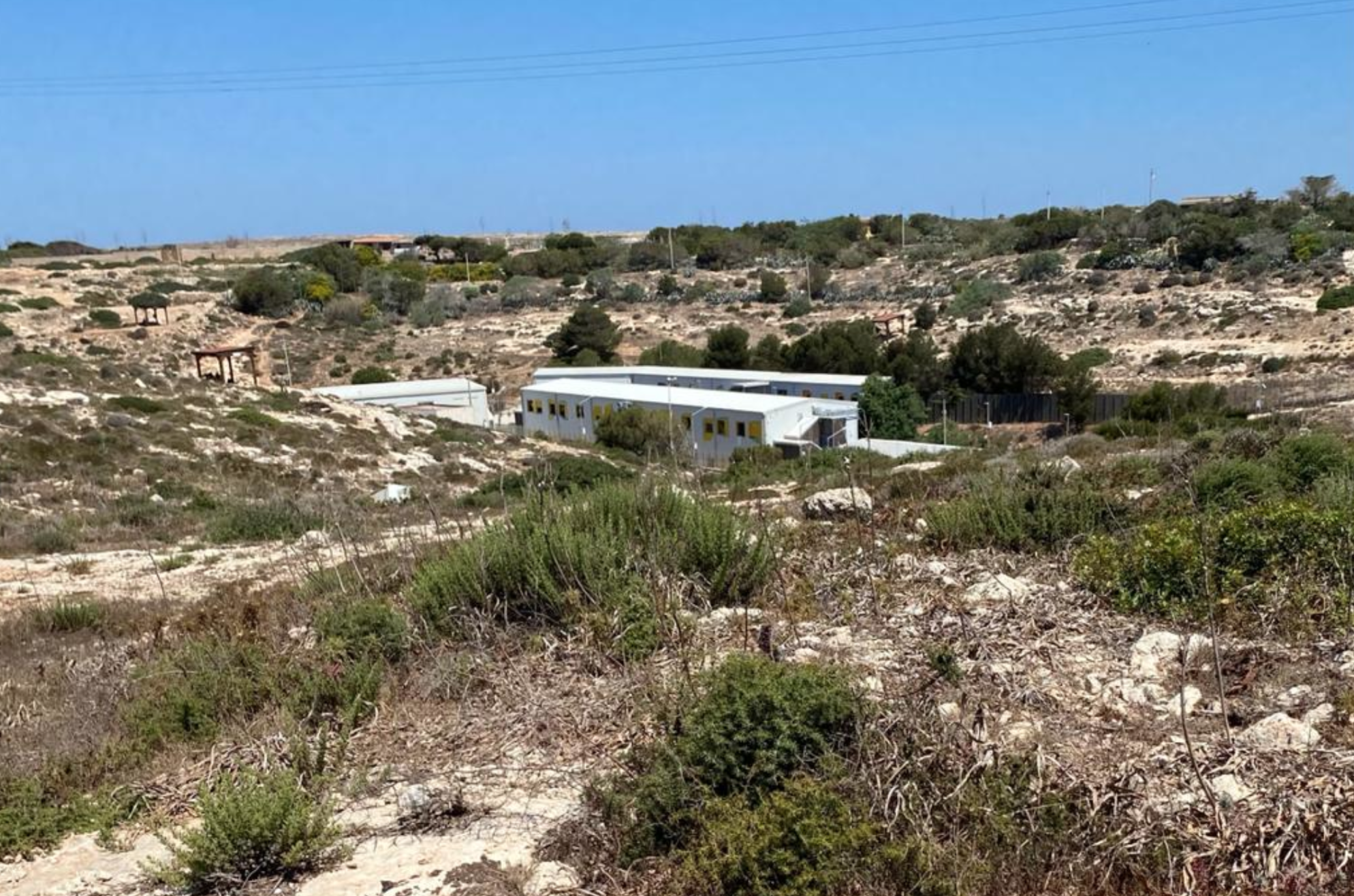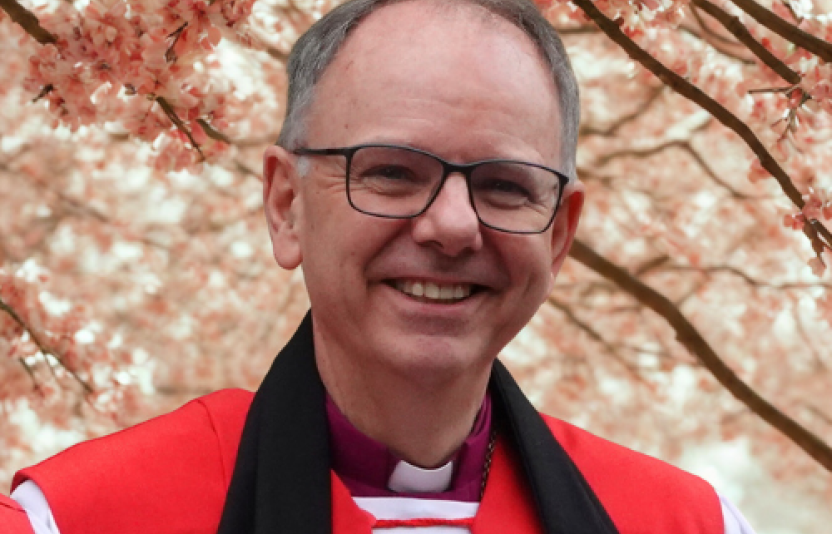Holy Cross Palermo welcome Porvoo Communion guest
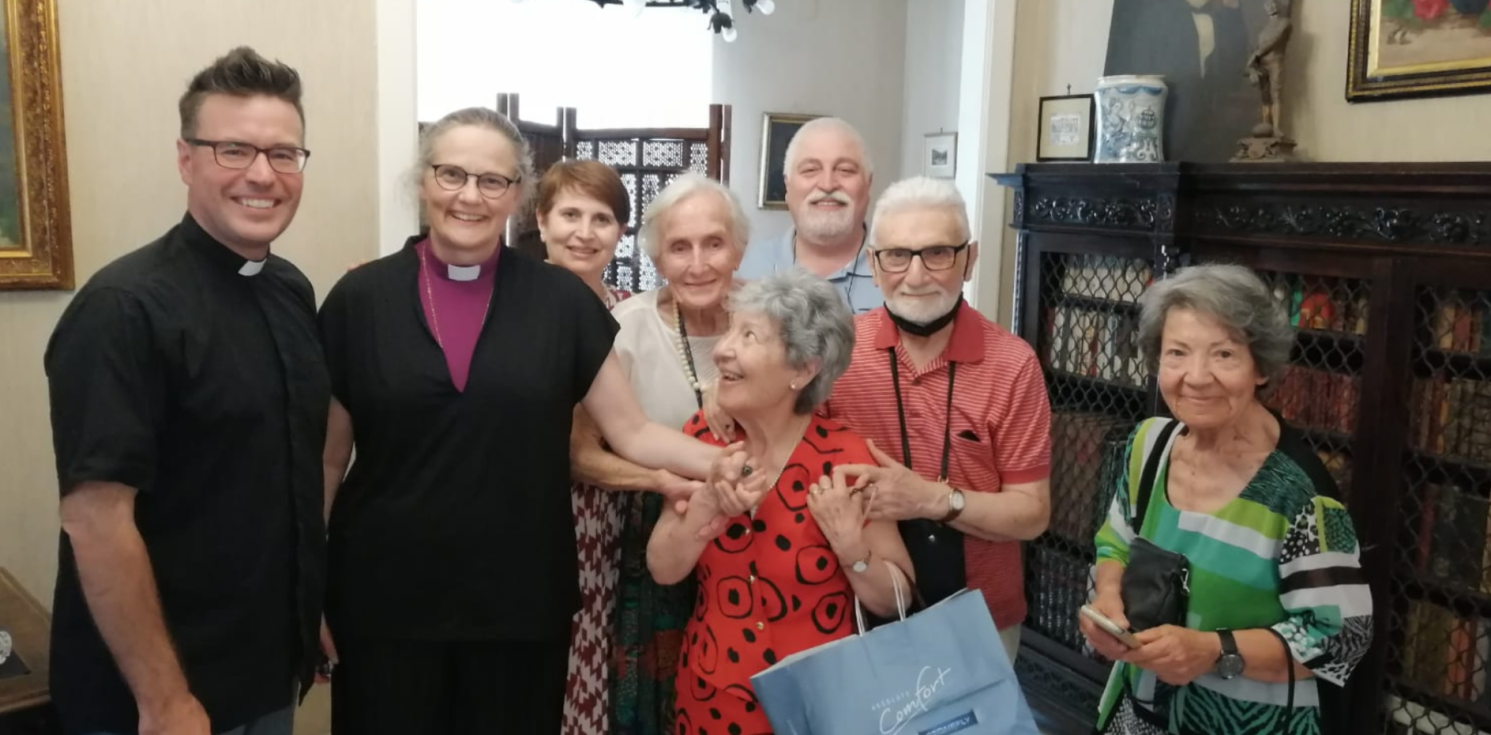
Holy Cross Palermo hosted Bishop Karin Johannesson of the Church of Sweden last month.
The Church of Sweden and the Diocese in Europe are both apart of the Porvoo Communion, a group of 15 churches across Europe. It was an opportunity to share stories, learn from each other and also to discuss the ongoing immigration crisis.
Fr James Hadley, of Palermo Chaplaincy reflects on the visit:
It was a joy to have Bishop Karin Johannesson of the Church of Sweden visit Holy Cross Palermo on 17 June. The impetus for the visit was twofold. First, to turn into concrete experience what it means to be sister churches in the Porvoo Communion. Oftentimes ecumenical dialogues, documents, and agreements can seem rather abstract, and once written can sit on shelves lifelessly.
The visit of Bishop Karin of Uppsala was instead an opportunity to envisage and enflesh what it means for the Church of England and Church of Sweden to be in communion: to share stories of our two churches, to listen to diverse and similar experiences, to gain wisdom and insight from each other, to eat and laugh together, and to share pulpits and be joined together in the Lord’s Supper. A special moment of this sharing was a luncheon hosted by the chaplaincy for our ecumenical partners in Palermo.
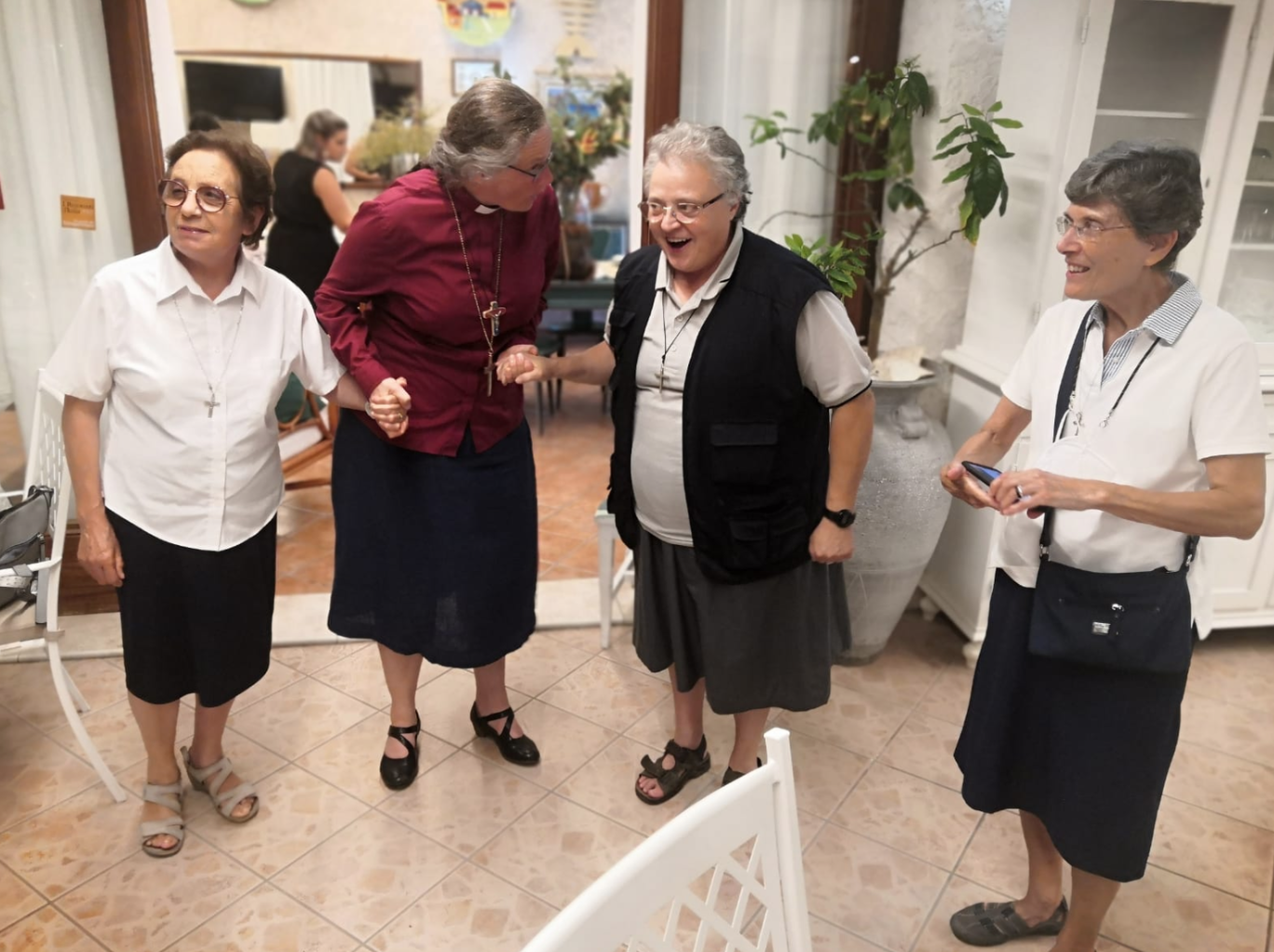
Bishop Karin is the first woman bishop from a historic, episcopally ordered church, to be in Sicily. The sharing of her pastoral ministry in dialogue with the other churches of Palermo and the warm and loving reception she received was certainly a moment of building bridges between churches with very different ecclesiologies.
The second impetus for Bishop Karin’s visit was to share the experience of the European immigration crisis as seen from the island of Lampedusa. Although an issue sidelined in many ways due to the war in Ukraine, Covid-19, and the cost of living crisis, Indo-Asian and African migration into the EU through Sicily is at an all time high. To play our part in confronting this tragedy it seems important to help build connections within EU member states and institutions (including churches), as a chaplaincy on the doorstep of Europe. Hence the beginning of a project at Holy Cross EU North-South (EU|NS).
As we all know, immigration is seen and experienced very differently across EU member states and political and social reactions vary greatly. I was able to accompany Bishop Karin, along with Rev. Luca Camilleri of the Sicilian Conference of Catholic Bishops to Lapedusa where we learned about human piracy, met with NGO’s and charities who work with arriving migrants, and viewed the overflowing migrant housing centre run by the Italian government. The hardest moment was seeing the immigration centre built for 300 persons, housing more than 1000, washing hanging out every window, mattresses strewn on the hill-side where the migrants sleep, ring-fenced with barbed wire, soldiers with machine guns looking on.
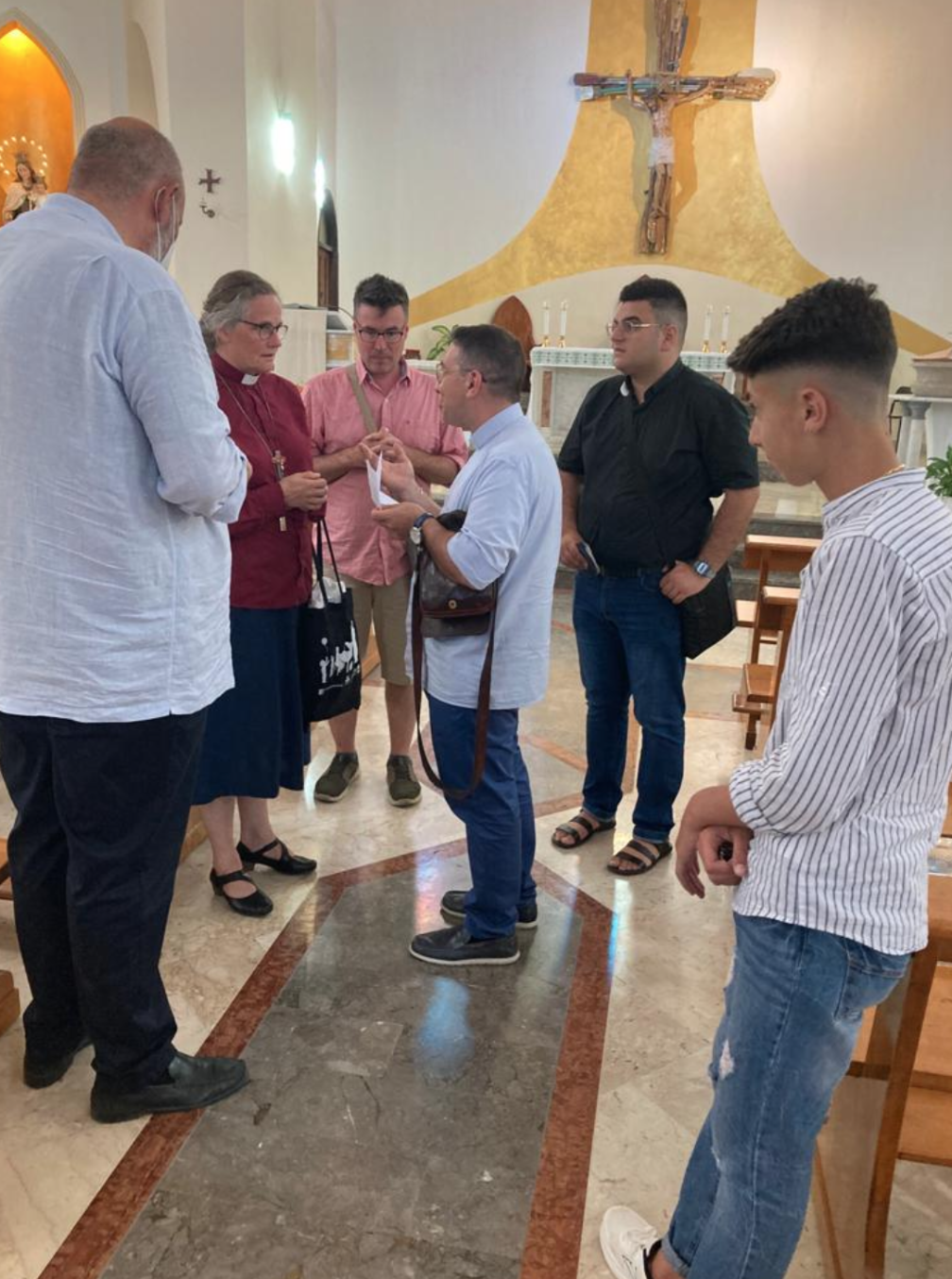
During an evening Mass at the Roman Catholic church on Lampedusa, Bishop Karin was presented with a mangled and water damaged copy of the New Testament Gospels that was found in the bottom of a boat recently arrived from North Africa - a holy relic of both human suffering and hope, but also a reminder that the most fruitful of ecumenical dialogue is practical, churches working together to serve humanity.
Bishop Karin was also gifted a pectoral cross made from the wood of a migrant boat. It seemed quite fitting as almost every migrant story we heard during our visit involved a person attempting to get to Sweden, and either dying in the effort, or succeeding and finding a new life there. Two churches, located in the extreme north and south of Europe, living and witnessing together as one body in the Porvoo Communion.
Bishop Karin said,
“When I met the priests of Lampedusa and the three sisters who live here together, I understood how important ecumenism is for human survival. Ecumenism is not just about conversations about dogmatic issues. Ecumenism is also - and perhaps most importantly - about us Christians together organizing our social work in a way that helps people survive. This is our common calling.”
For a deeper understanding of the Porvoo Communion, visit their website.
Highlights from the trip can be seen below:
